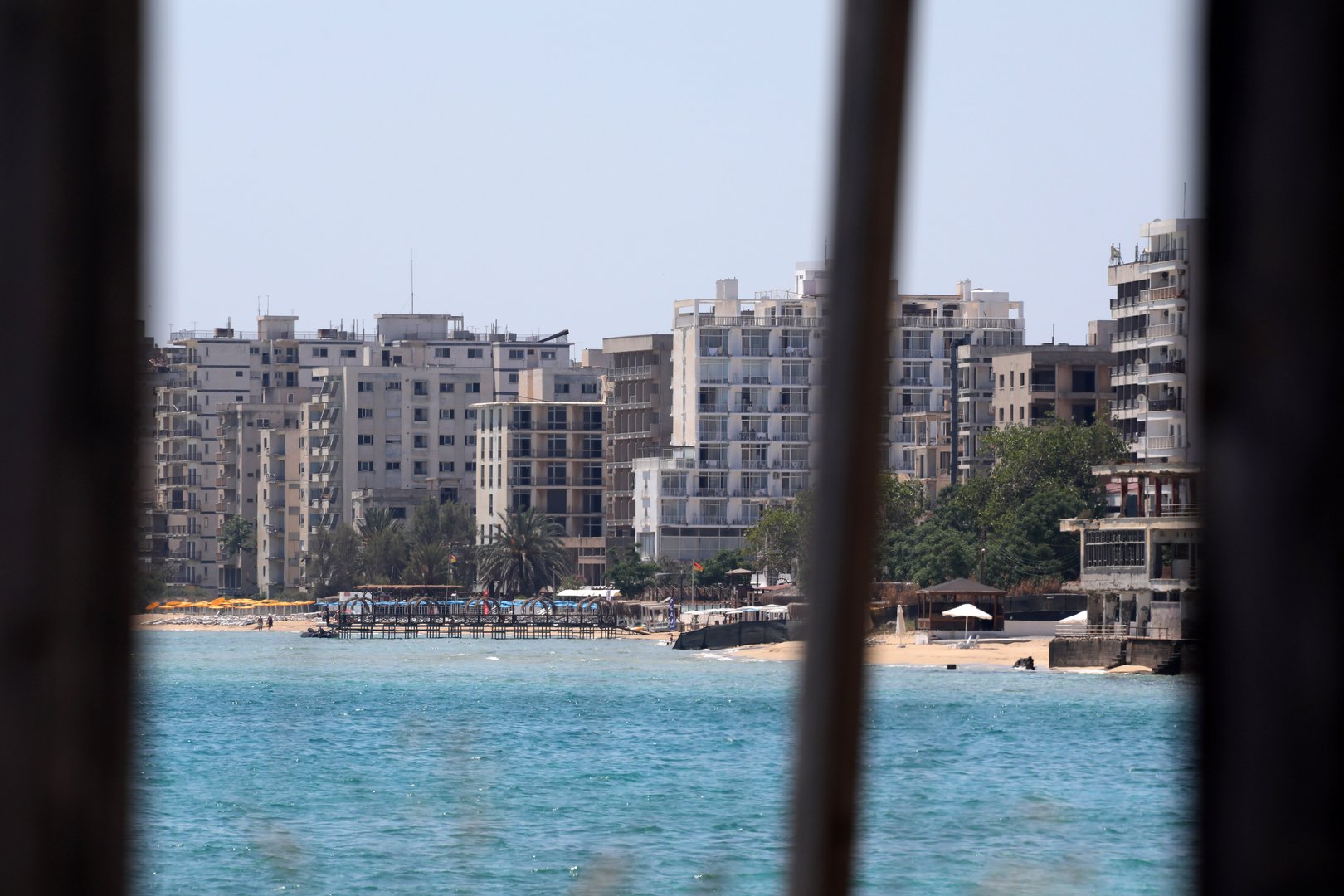Disy leader says they can’t be blamed for lack of progress on Cyprus solution
Greek Cypriots who sold their property in Varosha did so because they can see no light at the end of the Cyprus problem tunnel and are enduring economic hardships, Famagusta Mayor Simos Ioannou said on Tuesday.
He was speaking as the government continued to scramble to validate reports from the north last week about the sale of three hotels in the fenced in part of the city.
The Cleo Hotel, the Golden Seaside Apartment Hotel and the Aegean Hotel, and two apartment building floors were sold to a Turkish Cypriot businessman by their Greek Cypriot owners, through official procedures in the state-controlled areas and the immovable property commission in the north (IPC), a Turkish Cypriot website reported.
Ioannou told Politis radio that some Famagusta municipality councillors had come in contact with the Greek Cypriots that sold their properties and he was informed “they have hit extremely hard financial times, and that they do not see a light at the end of the tunnel [for the Cyprus problem], which is why they moved forward with this action [sale].
“The issue is first of all moral and political. Then we’ll see if it’s legitimate or not. We should have been resourceful and not demanding.
“As a municipality we have been warning for a long time about what the developments will be and it seems that the main reason is this continuous inaction on the Cyprus issue, which gives people the feeling that there is no longer a solution, as a result of which some are forced, either for financial or for other reasons, to sell their properties,” he said.
Ioannou later met Foreign Minister Constantinos Kombos about the matter later.
Speaking after the meeting, he said the sale of the properties in Varosha undermines the Greek Cypriot position on the territory aspect of the Cyprus problem.
However, he added that there a humanitarian issues in which the municipality cannot get involved with.
“He [Kombos] reaffirmed to us that the government takes this matter very seriously, and is taking the necessary steps to have all the information about this case,” Ioannou said.
He added that councillors will hold more meetings with the minister to further discuss the issue.
According to Ioannou, Kombos reassured them that the government wants a solution to the Cyprus problem, based on a bizonal, bicommunal federation, and that he tabled proposals to reassure people that there is a hope of returning to the city.
Meanwhile, main opposition parties Disy and Akel called on the government to get moving on the Cyprus talks, as there has been stagnation for too long.
“We also expect the government to take the appropriate steps. There needs to be action at the international and European level especially now with all that is unfolding, Disy leader Annita Demetriou said.
“We must be prepared; we must realise how damaging the negotiation impasse is and that is why we should essentially focus our efforts to be able to restart the negotiations based on the agreed framework.”
She added some people have been waiting almost half a century for a solution, and that refugees cannot be blamed for the negative results of a failure to solve the issue.
Earlier in the day, Demetriou said that parliament would prepare letters for the Parliamentary Committee of the Council of Europe on the issue.
She said that the head of the committee Tiny Kox, a Dutch MP, would be visiting Cyprus to also be informed. Kox is set to visit from July 6 to 7.
Akel general-secretary Stefanos Stefanou echoed the Disy statements, saying that not holding talks on the Cyprus issue is damaging.
“It is clear that the passage of time without a solution to the Cyprus problem has many side effects and many negative consequences on the ground and now we are seeing such a negative consequence,” he said.
The issue was also raised at a House refugee committee session during the day, where the head of the central body of equal distribution of burdens, which manages refugee property losses, Akis Pouros said that Turkey’s goal is to take advantage of the IPC to change the territorial majority the state currently holds claims to.
Pouros added that the IPC has 7,500 cases filed by Greek Cypriots, and that to date 1,300 have been examined worth €382 million.







Click here to change your cookie preferences